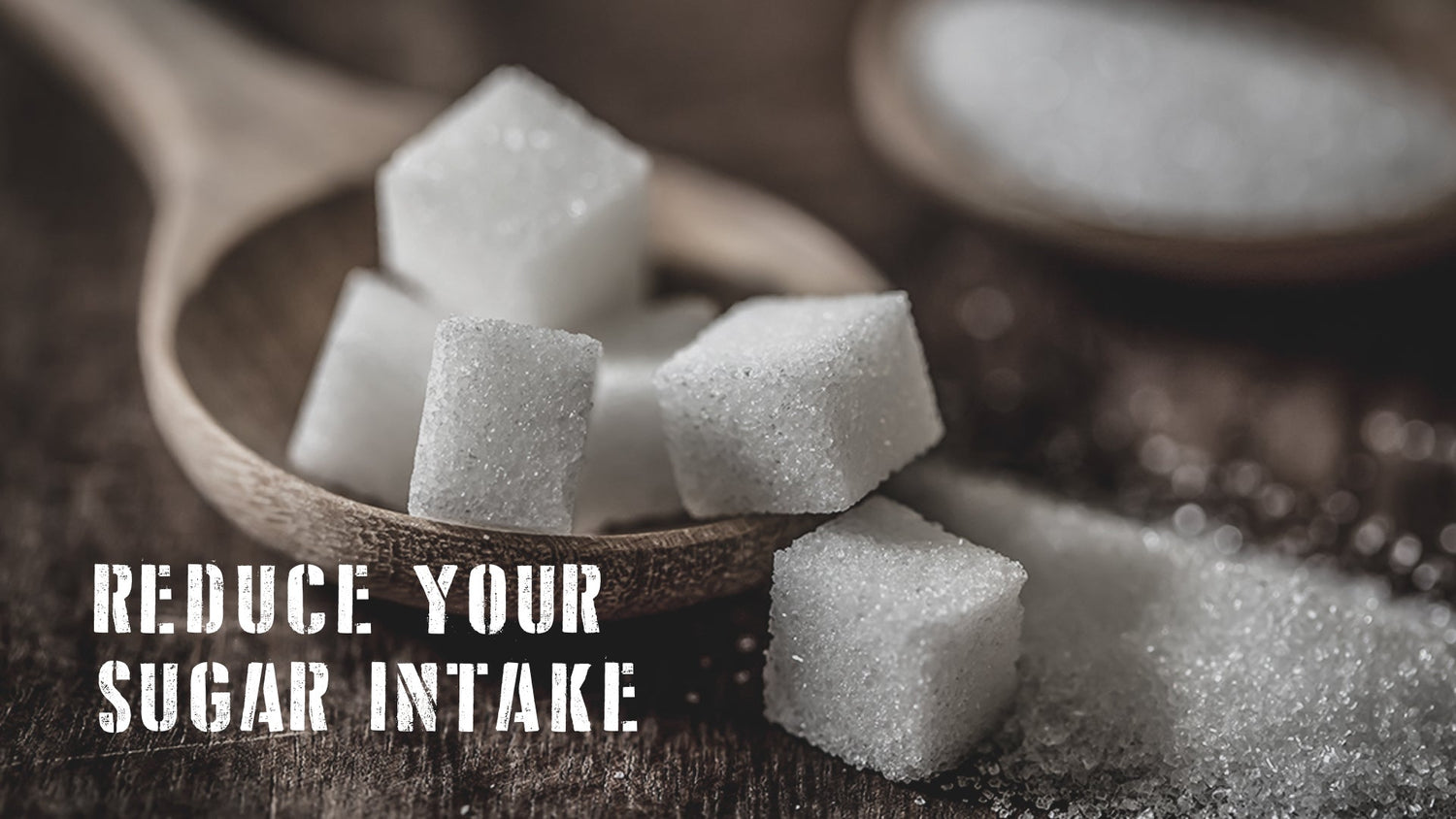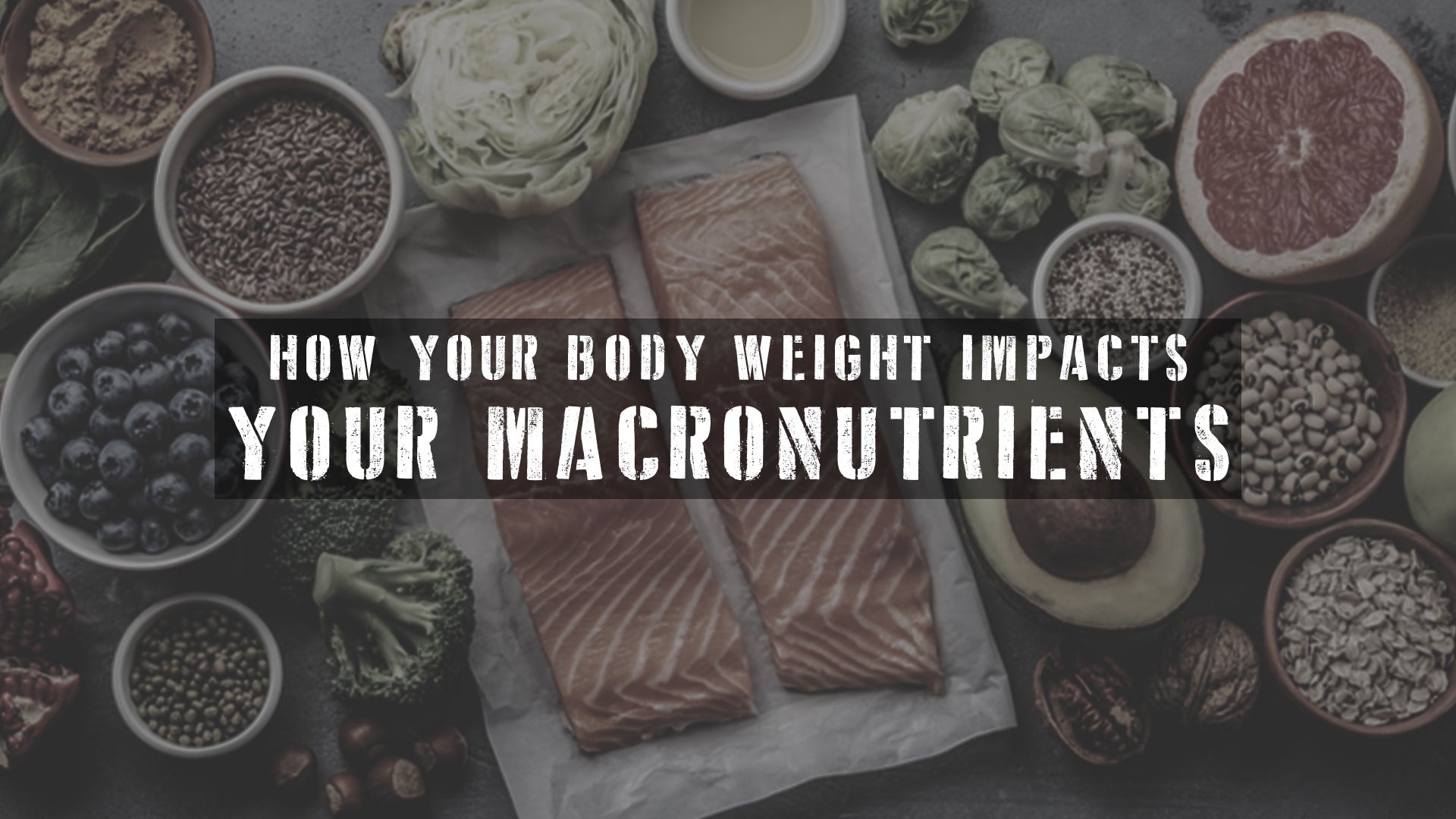If your goal is a lean, huge physique, the biggest improvement you can make in your diet (after increasing your protein intake) is cutting sugar. You will not get lean if you’re over-loading on sugary foods and drinks. Beyond being useful for quick training energy and post-workout recovery, sugar is not worth the trouble. In fact, beyond your pre and post-workout nutrition, you should avoid it altogether. To that goal, here are some tips to reduce your sugar intake!
What Is Sugar - And What’s The Problem?
First, let’s define what sugar is. It’s a simple, or fast digesting, carbohydrate, that is 50% fructose and 50% glucose. Sucrose is the chemical name for sugar, and it’s what we think of as table sugar.(1)
Fructose is the sugar found in fruits and some vegetables, and it’s in most sweeteners that come from sugar. The liver metabolizes fructose, and it does not cause insulin spikes. For that reason, it was originally thought to be a good sugar replacement. Yet studies show that eating foods with added fructose can lead to fat gain, especially belly fat.
Glucose is the sugar that is turned into glycogen and stored in the cells for energy. But, and here is the problem, if you eat more than the body needs to fill glycogen stores, it is converted into fat.(1,2)
Tips To Reduce Your Sugar Intake
Eliminate Processed Foods
A great first step is to start eliminating processed foods from your diet. If you can’t imagine life without sugar, you’re not the only one. Therefore, a gradual reduction is best. Set a goal of eating only up to 25 grams of sugar daily.
Don’t Add Sugar To Your Food Or Drinks
One way to instantly reduce sugar is to stop adding it to your food, coffee, tea, or any beverage.
Avoid High Sugar Beverages
Here’s another great way to reduce your sugar intake. Cut sweetened beverages and beverages with added sugar. That includes soda, tea, single-serving coffee beverages, energy drinks, and so on. Any source of sugar can quickly add unwanted calories and lead to fat gain because of an intake of more carbs than the body needs for energy.
Avoid Fruit Juice
Many people think fruit juice is OK, but it can have added sugar and high amounts of fructose. It’s much better to eat a piece of fruit. For one thing, you’re getting all the nutrients it has to offer.
Most fruits are high in fiber, vitamins, and antioxidants, which means they are an important part of your diet.
Whether your goal is fat loss or lean mass, limit your intake of fructose to 10 grams of fructose a day. Low-fructose fruits and vegetables include most berries, nectarines, grapefruit, avocado, and tomatoes. In contrast, apples, bananas, and pears have higher amounts of fructose. Save these fruits for your pre and post-workout nutritional program.
Read Food Labels
When choosing food, always read the label. Look for the sugar content, but also see how that relates to the fiber and total carbohydrate content. Also, check the protein, fat, and sodium content. Depending on the food, you should aim for a single-digit sugar content, the lower the better.
There Is No Healthy Sugar
Arguably, fructose may be the worst sugar of all. That’s because it slows metabolism and halts fat burning. Even so, the only real value in any form of sugar is that it can contribute to workout energy and fast absorption of carbohydrates post-workout for better glycogen replenishment. For optimal body composition, you should limit sugary carbohydrates to the hours around your workout only. You should also include complex carbs as well. One great way to do this is with 5% Nutrition Real Carbs. This legendary supplement features a blend of mostly low-glycemic real food sources of carbohydrates. Yet there are also some higher-glycemic carbs, which makes Real Carbs the ideal workout powder. Mix in Shake Time No Whey Protein, and you’re all set.
Recap
No matter what your goal is, cutting sugar is a healthy nutritional move. The bottom line is to read all your food labels and keep your servings of sugar in the single digits. Sugary carbs are only important in the hours around your workout. Beyond that, follow our tips to reduce your sugar intake, and you’ll be successful!
References:
- https://www.bbcgoodfood.com/howto/guide/sugar-explained
- Pollock, N. K., Bundy, V., Kanto, W., Davis, C. L., Bernard, P. J., Zhu, H., Gutin, B., & Dong, Y. (2012). Greater fructose consumption is associated with cardiometabolic risk markers and visceral adiposity in adolescents. The Journal of Nutrition, 142(2), 251–257. https://doi.org/10.3945/jn.111.150219













